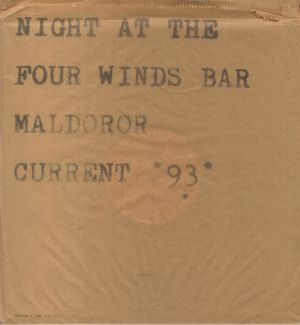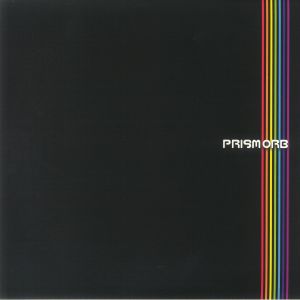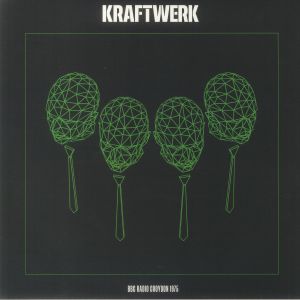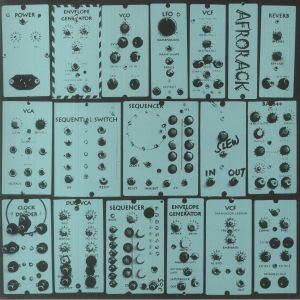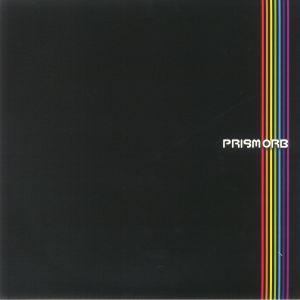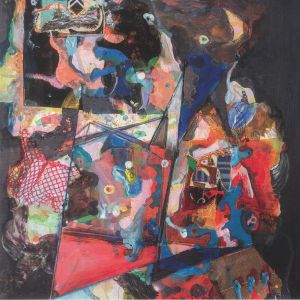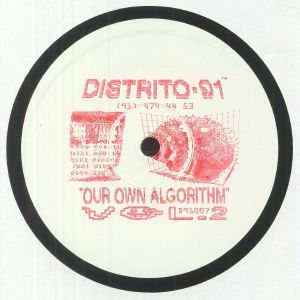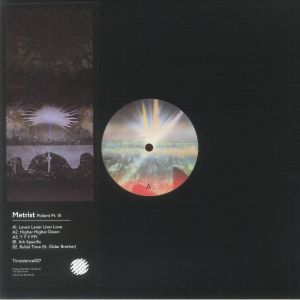
Juno Recommends Experimental
Juno Recommends Experimental: June 2023
Read more...
1
Cat: DOAR XII. Rel: 29 May 23
Experimental/Electronic
Review: Several new reissues of Current 93's music come via Cashen's Gap, the home imprint of said industrial supergroup - which infamously includes musical iconoclast David Tibet among its ranks. Night At The Four Winds Bar Maldoror is one of their albums, released in 2023 - it's a complete reworking of their 1986 album Live At Bar Maldoror, with the original album playing forwards in the right-hand channel and backwards in the left-hand channel. Its 15 tracks explore themes of death, apocalypse and transcendence, using a mix of industrial, folk and ambient sounds. Don't miss it, as it's one of the band's many curiosities, and is a star example of what made the band so lauded as among Britain's weirdest acts in the 80s and 90s.
...Read more
out of stock $33.45
2
Cat: MIND 838. Rel: 15 May 23
Experimental/Electronic
Review: Recorded in 1981, Turning Japanese captures Kraftwerk at the absolute height of their creative dominance, but sometime before their true induction into the household name superstar category of artists. Still representing a very forward thinking, boundary pushing and - as a result - specialist sound, this nine-track live recording feels like yesterday's tomorrow.
Opening with a stunning neo-classical synth overture, we're then taken on a journey through the mind of the man machine, an industrial yet somehow strangely human proto-electro world that is defined by order and structure, while still allowing for enough funk and groove to make sure feet, hips and more move seemingly of their own volition. Perhaps not the most insightful take on the pioneering German band - nothing here that hasn't been said before - nevertheless we hope it goes someway to describing how precise, refined and overwhelmingly infectious they can be on stage.
Opening with a stunning neo-classical synth overture, we're then taken on a journey through the mind of the man machine, an industrial yet somehow strangely human proto-electro world that is defined by order and structure, while still allowing for enough funk and groove to make sure feet, hips and more move seemingly of their own volition. Perhaps not the most insightful take on the pioneering German band - nothing here that hasn't been said before - nevertheless we hope it goes someway to describing how precise, refined and overwhelmingly infectious they can be on stage.
...Read more
in stock $14.93
3
Review: Electronic mainstays and long-time innovators The Orb never stop working; this is their rather epic 18th album. It is the third one from the core pairing of Alex Paterson and Michael Rendall. It finds them exploring a wider sphere of sound than ever with ambient, house and dub as well as some occasional poetry, reggae, heavy drum & bass and even some pop. Plenty of guests are on the record such as David Harrow, Gaudi, violinist Violeta Vicci, Kompakt Records alumnus Leonardo Fresco and many more. It's another bold and ambitious piece of work.
out of stock $33.15
4
Review: Kraftwerk's 1975 performance at Fairfield Hall in Croydon is the stuff of legend. Finally it is available as a high quality audio pressing that allows you to relive all its glorious futurism. The show was broadcast on radio as part of a short tour of the UK that came after the release of the German computer music pioneer's hugely popular Autobahn. It features tracks from that album as well as 'Die Sonne, Der Mond, Die Sterne' and 'Showroom Dummies.' A real piece of electronic music history that will spice up any collection.
out of stock $14.93
5
Review: As Jeff Mills returns to his third deepest obsession after 909s and UFOs, he presents an addendum to his renewed Metropolis Metropolis soundtrack which doubles down on three of the themes and gives them a different framework through the lens of a 12". This is still the more cinematic end of the Millsian spectrum, but there's some intensity which may well be of use to the more dramatic or daring techno DJ. 'The Dance Rebellion Starts' is plenty loopy and disorienting, full of interwoven, clangorous patterns which should stay nicely in time if you get them locked in the mix. 'The Other Maria' might well be the star of the show though, a nightmarish, ever-building drone piece with some half-time percussion stalking around the edges for guidance. 'Freder's Reality Switch' completes the picture with a slightly more stable synths n' strings piece, but there's still that innate sense of otherness Mills always threads into his work.
...Read more
out of stock $17.96
6
Review: Afrorack is a Ugandan producer whose self-built modular synthesis approach to making music has lent him much credo over the years, but perhaps none will lend him so much as The Afrorack, which comes as the latest and least deniable expression of his sound to date. Four tracks of traditional African rhythmatics merge with live sound synthesis and ghost-powered CV noodlings, producing an incredible foray into avant-garde electronics few could argue has ever been heard before. Whether it be caused by the trance-intoned 'Inspired' to the grit-covered 'Bass', Hakuna Kulala must be chuffed to have Afrorack form part of their catalogue, as his music is certainly among their best for representing the lesser-trodden and most criminally unsung corners of African electronic music.
...Read more
out of stock $22.10
7
Review: Prism brings the number of Orb albums to 18 and now in their fourth signnificant phase as a line up - Alex Paterson joined by Michael Rendell, replacing long term Thomas Fehlmann - released by electronic music duo The Orb into at least the high twenties. In this time, the pair have achieved cosmos-wandering musical mastery, expanding their usual dance music horizons into even further-flung territories like synthpop and non-dub reggae, tempering it all into a unified, fantastical sound. Only nine tracks convey The Orb's latest sonic imaginings, with the phase-swirly, wah-infected 'Why Can't You Be In Two Places At Once' and the future-reggae cut 'Dragon of the Ocean' standing out as highlights. Of course, it wouldn't be the same without The Orb's usual indulgence in collaboration, this one sporting appearances from Gaudi, Youth, David Harrow and violinist Violeta Vicci. .
...Read more
out of stock $27.37
8
Review: Nothing hits quite like a dose of that raw Midwestern noise Wolf Eyes are capable of conjuring. Nate Young's troublesome project has shirked popular consensus for 25 years now, following its own gutter-dwelling logic into ever slimier surroundings. Of course not everything along such a path is perfect, but when the noise hits right, it's majestic. On Dreams In Splattered Lines, released on the ever-excellent Disciples label, Young and fellow Michigan miscreant Jonny Olson are on superlative form, wreaking some tangible brilliance out of scattershot chaos. Just listen to 'Plus Warning' and you'll understand - this is Wolf Eyes at their best.
...Read more
out of stock $22.10
9
Review: Matt Stephenson and Sean Kelly's wildly imaginative Machine Girl project should need no introductions, but we'll assume ignorance and cut to the chase anyway. "Fucked-up electronic punk" was the term used by Stephenson in an interview with Revolver magazine, a rather admirable attempt to explain what was happening under the guise he created as a soloist in 2012, before drafting a partner for live percussion three years later.
WLFGRL landed just a year before that embryonic expansion, and in many ways feels much more like a 'dance music' record than what would follow. Tracks hit the nose on the head in terms of where club sounds were heading in just a few years after this arrived, essentially post-genre fusions of sound that owe as much to rave's formative years as they predict the beautifully chaotic and impossible to pigeonhole noises of today.
WLFGRL landed just a year before that embryonic expansion, and in many ways feels much more like a 'dance music' record than what would follow. Tracks hit the nose on the head in terms of where club sounds were heading in just a few years after this arrived, essentially post-genre fusions of sound that owe as much to rave's formative years as they predict the beautifully chaotic and impossible to pigeonhole noises of today.
...Read more
out of stock $38.42
10
Cat: D 91007. Rel: 22 May 23
Experimental/Electronic
Review: The first volume in Distrito 91's Our Own Algorithm series, which landed in stores last year, was described on these very pages as "a standout electro statement". This sequel is similarly impressive, with five club-focussed workouts to savour. It begins with Fabio Vinuesa's 'Numbers', a pulsating, peak-time ready electro club jam full of mutant acid bass, twisted TB-303 lines, robotic melodies and deep space chords, before Kaftactrl delivers some ghostly, alien-sounding thrills ('Limbic Crash', with its eight-bit bleeps and throbbing bassline), and Hoax Believers join the dots between Cybotron and Drexciya on 'Hulla'. Over on side B, DJ Unisex doffs a cap to Kraftwerk on the foreboding and funky analogue antics of 'Telekommunication', while Self Learning System explores more spacey sonic territory on 'Deep Sea'.
...Read more
out of stock $16.57
11
Review: Metrist closes doesn't a trilogy of EPs on Timedance with this third and final offering of Pollen. It is another meticulously well-crafted mix of intelligent synth design and hi-fidelity sound with inventive techno rhythms. 'Leven Lever Liver Love' opens with a hint of IDM and poppy synth madness. 'Higher Higher Dawn' is another brain-cleansing cut with a freaky vocal adding a human touch. 'Y Y Y MY' then layers up loopy sounds to melt the mind in a hyper-real fashion and 'Ark Specific' again pairs floating rhythmic airiness with bass weight and thrillingly fresh melodies. 'Bullet Time' (feat Older Brother) is a dystopian way to end this forward-thinking EP.
...Read more
out of stock $16.03
12
Cat: 076855 8900721. Rel: 15 May 23
Experimental/Electronic
out of stock $22.10
13
in stock $13.82

 USD
USD




